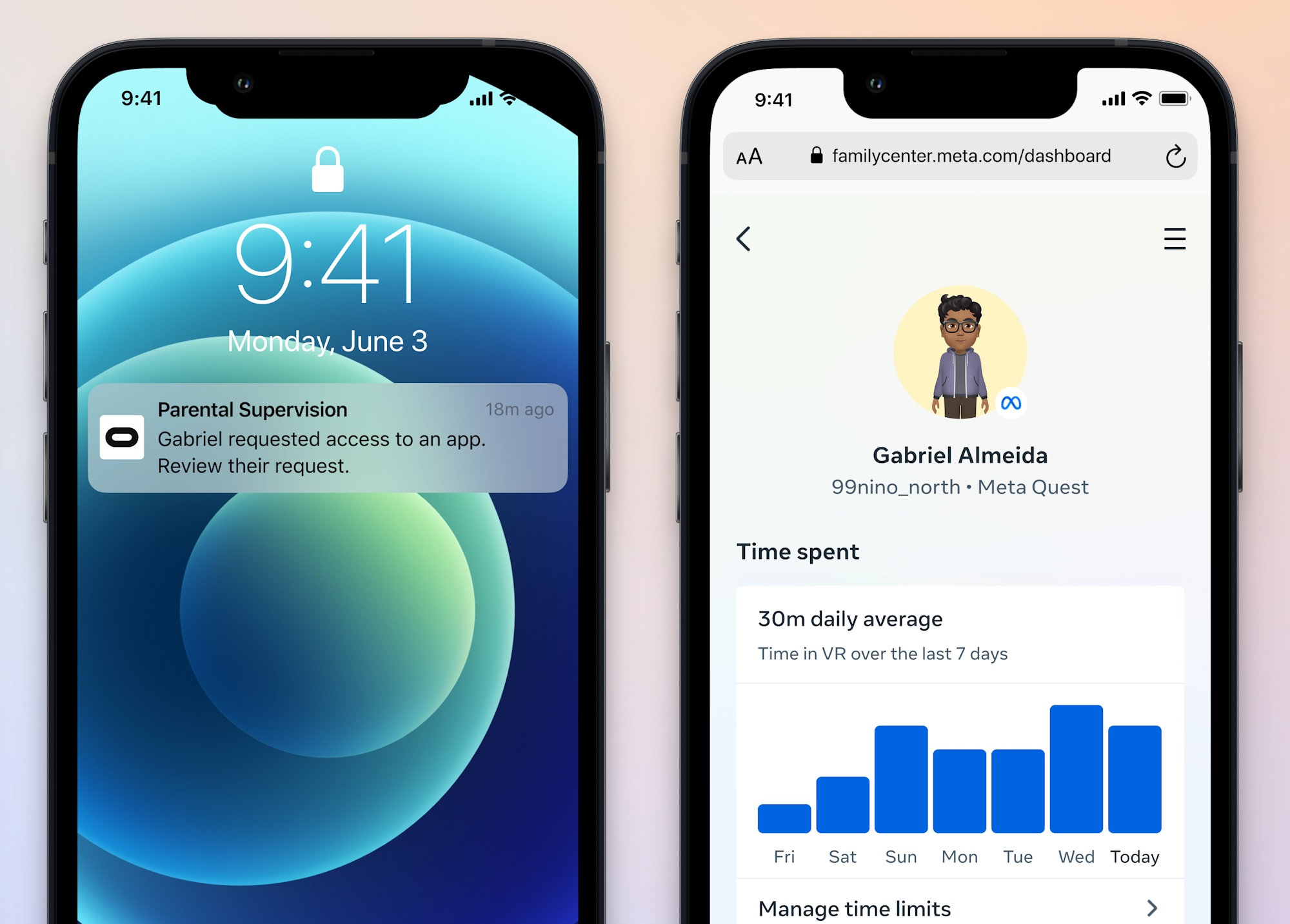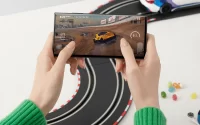Meta says it’s totally fine for 10-year-olds to wear its VR headset, probably
Meta will soon officially permit users as young as 10 to use its Meta Quest 2 and 3 VR headsets — if their parents say it’s okay, anyway. In a blog post, the tech giant says that there’s “a vast array of engaging and educational apps, games, and more” for the kiddos, even if the jury is still out on whether it’s healthy or not. Just in time for Roblox!
The new parent-managed Meta accounts will require mom or dad’s approval to begin with, and parents will be able to control which apps preteens use and set time limits. If you want to take part, most of the info you’ll need will be available in the “family center” part of your account.
Regarding data collection, the company says “We will use information we collect about 10-, 11-, and 12-year-olds through our Meta Quest products to deliver an age-appropriate experience. We do not serve ads to this age group. Parents will also be able to choose whether their child’s data is used to improve the experience, and they will be able to delete their child’s account, including all of the data associated with it.”
Hopefully they actually delete it when you ask, unlike some huge tech companies that save kids’ data. The FTC is watching.
It’s up to every parent to make the choice of whether VR is appropriate for their kid, of course. And when I say the jury’s out, it really is that there just aren’t enough independent studies of kids using modern headsets.
To its credit, Meta provides a document mentioning many of the potential hazards of VR, from the fact that the helmets are much heavier for a small child than an adult to the potential for eye strain and nausea. All the sections, however, end in Meta saying something along the lines of “but we’ve found no evidence that this is harmful.” I’m not saying they’re being untruthful here, but the company hasn’t exactly built up a reputation of trustworthiness when it comes to how its products affect people negatively.

Perhaps the scariest thing mentioned is the potential erosion or delay of a child’s “reality distinctions.” What a phrase! Of course at a young age reality and fantasy do tend to blur together. But even five or 10 years ago, kids didn’t have full-immersion displays with photorealistic worlds to get lost in.
If you decide to let your kid experience VR, cool. Could be a really fun experience for everyone involved, because VR can be awesome. But even adults can have negative effects almost immediately, let alone from prolonged exposure. Talk to your kid and be careful about how long and how seriously they engage with this technology. When even Meta is telling you there are risks, listen.



Great!